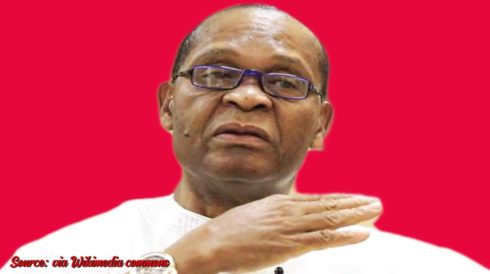APC chieftain Joe Igbokwe made a bold declaration regarding Nigeria’s current socio-economic challenges. He lamented the worsening economic situation, particularly the skyrocketing cost of essential commodities, notably rice, a staple in Nigerian households. According to Joe Igbokwe, the leaders capable of rescuing the nation from its economic distress may not yet have been born, highlighting a grim outlook for the immediate future.
The comment comes amid increasing public outcry over the steep rise in living costs. A bag of rice, once affordable for the average Nigerian family, now feels out of reach for many. This surge in prices has been attributed to a combination of factors, including inflation, currency devaluation, and agricultural setbacks, all of which continue to strain the nation’s already fragile economy.
Joe Igbokwe: Rising Cost of Living: Rice Prices Hit Record Highs
The cost of a bag of rice in Nigeria has reached unprecedented levels, drawing concern from both citizens and policymakers. What was once an essential commodity for most families has now become a luxury item, with prices more than doubling in the past year alone. A 50kg bag of rice, which sold for around ₦20,000 in early 2023, now retails for upwards of ₦45,000 in many parts of the country.
This inflation in food prices has far-reaching effects, as rice is a primary staple for millions of Nigerians. The rising cost has further exacerbated food insecurity, especially in low-income households, where budgets are already stretched thin. Experts have called for immediate intervention to prevent a full-scale food crisis, but solutions remain elusive as deeper economic issues persist.
Joe Igbokwe: Economic Struggles, Inflation and Devaluation Take Their Toll
Nigeria’s current economic challenges can be traced to multiple interwoven factors, with inflation and currency devaluation topping the list. The naira, Nigeria’s currency, has seen significant depreciation against major global currencies, pushing the cost of imports—such as rice and other essential foodstuffs—through the roof. This decline has led to skyrocketing prices, making it increasingly difficult for local industries and markets to stabilize.
Additionally, inflation rates in Nigeria continue to climb, exacerbated by global supply chain disruptions and the ongoing energy crisis. The cost of transportation, logistics, and even agricultural inputs have all surged, further compounding the already dire economic landscape. Many economists warn that without strong fiscal reforms, Nigeria’s economic recovery may remain an elusive dream.
Joe Igbokwe’s Bold Statement: Is There Hope for Nigeria’s Leadership?
Joe Igbokwe’s remark that “the men and women who will rescue Nigeria from self-inflicted pains and tears aren’t born yet” has raised eyebrows across the political spectrum. Joe Igbokwe, a staunch member of the ruling APC, is known for his candid and often controversial commentary. His latest statement reflects a growing frustration not just with the current government, but with the political class as a whole.
The APC chieftain’s words resonate with many Nigerians who feel increasingly disillusioned by the leadership’s inability to effectively tackle the nation’s economic and social challenges. His claim suggests a deep-seated belief that the current generation of leaders lacks the vision and capacity to navigate Nigeria out of its current crises. The question now is whether this sentiment will galvanize the necessary change or deepen the public’s discontent with Nigeria’s political leadership.
Joe Igbokwe – Agricultural Setbacks and the Impact on Food Security
Nigeria’s agricultural sector, once a backbone of the economy, has faced significant setbacks in recent years, contributing to the rising cost of rice and other essential goods. Insecurity, including farmer-herder conflicts and insurgencies in key agricultural regions, has hampered food production. Many farmers have been displaced, unable to plant or harvest crops, leading to reduced yields and higher prices.
Furthermore, inconsistent government policies and limited access to modern farming techniques have hindered agricultural development. The lack of investment in infrastructure, such as irrigation systems and storage facilities, has exacerbated the sector’s struggles. If these issues persist, the hope for a self-sufficient agricultural system capable of meeting domestic demand seems bleak, and the need for imports will continue to drive up prices.
Calls for Urgent Intervention and Economic Reforms
As the cost of living continues to soar, Joe Igbokwe and other concerned citizens are calling for urgent government intervention. Economists have suggested a range of solutions, from bolstering agricultural production through subsidies and incentives to addressing the naira’s freefall through targeted monetary policies. However, these solutions require swift action and political will, both of which seem in short supply.
The Nigerian government has faced criticism for its handling of the economic crisis, with many accusing it of being reactive rather than proactive. There is widespread agreement that structural reforms are needed, including investments in agriculture, energy, and infrastructure. Without these, the nation may continue to grapple with the high cost of living, leaving millions of Nigerians in a cycle of poverty and economic despair.
Table of Contents
Discover more from OGM News NG
Subscribe to get the latest posts sent to your email.














